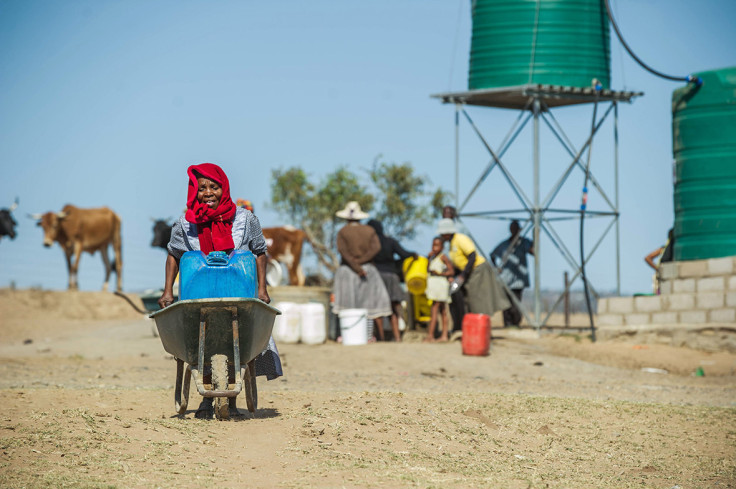South Africa's economy under threat by weak rand and worst drought on record

Commentating on the third Test between South Africa and England last week, former Proteas captain Graeme Smith acknowledged the arrival of a thunderstorm above Johannesburg with relief.
"It's a shame for spectators for they don't get to see a whole day's play, but this region badly needs rain," said Smith as players walked off the pitch earlier than expected on day two.
Johannesburg, and in fact South Africa as a whole, do indeed desperately need rain, for the country is currently experiencing its worst drought since records began in 1904 and the National Weather Service said 32 temperature records have already been broken in the first two weeks of 2016.
The lack of rainfall has seen maize production plunge 30%, while the price of white maize on the South Africa Futures Exchange has more than doubled over the past 12 months.
Agriculture contributes just 2.2% to South Africa's gross domestic product, but such is the severity of the drought that the country will be forced to import food, with analysts predicting the country will have to import approximately R12bn (£500m, $710m) worth of maize.
The drought could hardly have come at a worse time for South Africa, which has seen its currency lose 26% of its value in the six months that followed the sell-off that gripped Chinese markets in June 2015.
On 17 January, the pound touched R24.096, compared with R17.573 a year earlier, while on the same day the US dollar reached R16.958 compared with R11.588 in January 2015.
The ongoing weakness of the rand, which has been worsened by political reshuffling that have seen South Africa President Jacob Zuma fire two finances ministers within four days in December, and the need to import crops from abroad could push food prices through the roof.
"We expect general food prices to increase by 15% to 20% this year because the drought is hitting everything," said Christo Joubert, head of the food price monitoring division belonging to the National Agricultural Marketing Council.
Higher food prices are forecast to have a serious impact on the pockets of many in a country where a third of the population still cannot find a job. To complicate things even further, analysts have warned that the South African economy could decline for the third consecutive year over the next 12 months, with the rate of growth expected to fall below 1%.
The near-stagnant economy is one of the reasons that limits the government's options when it comes to halt the decline of the rand, which has lost 50% of its value since Zuma first came to power in 2009, as raising interest rates to stabilise the currency would put the economy under even more pressure.
Meanwhile, the growing pessimism surrounding the state of South Africa's economy, which has been exacerbated by a lack of political leadership, has seen business confidence hit the lowest level since 1993.
Analysts have grown increasingly disillusioned with Zuma to the point where some suggest his party, the ruling African National Congress, might force him to resign should the party lose ground at the upcoming municipal elections in Johannesburg and Pretoria.
"We look for a cornered ANC machine having the possibility of managing the exit of President Zuma around July," said Nomura's emerging markets analyst Peter Attard Montalto.
© Copyright IBTimes 2025. All rights reserved.






















